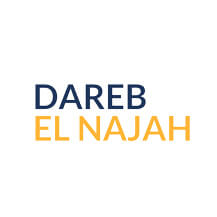
Summary
Dareb el Najah” is a follow on grant to EDF’s previous project “Back on the Map”, it was built on successes, lessons learned, and leveraged the relationships built during the first grant. Its design and components are in synergy with LIFE’s vision of Revitalization Hub initiative funded by USAID. This initiative, Quasi- Hub, was created in some vulnerable peri-urban areas in Lebanon in order to provide the most significant impact.
In “Darb el Najah” 3 organizations: Entrepreneurial Development Foundation (EDF), Michel Daher Social Foundation (MDSF) and The Chamber of Commerce, Industry and Agriculture of Zahle and the Beqaa (CCIAZ) worked in synergy in one concentrated area of Central Bekaa
Darb el Najah grant was signed on October 16, 2019, a day before the October 17th Revolution in Lebanon. What followed after that was the Covid-19 Crisis resulting in a total lockdown.
Despite the critical situation, EDF accepted the challenge and worked hard to continue the project, organizing the training by area to avoid the trainees’ absences, and then switching to online training, where we were the first organization to do it and successfully!










